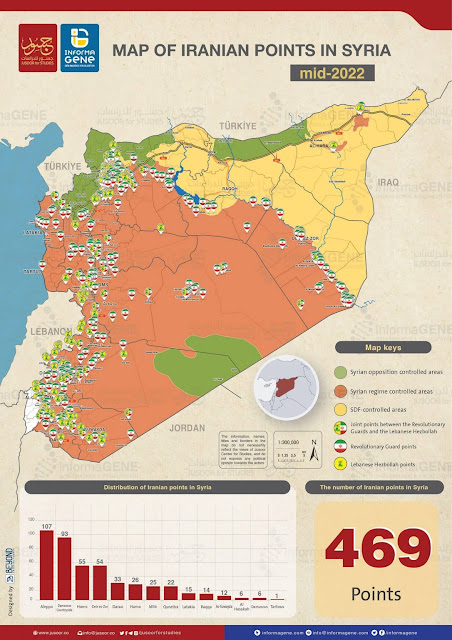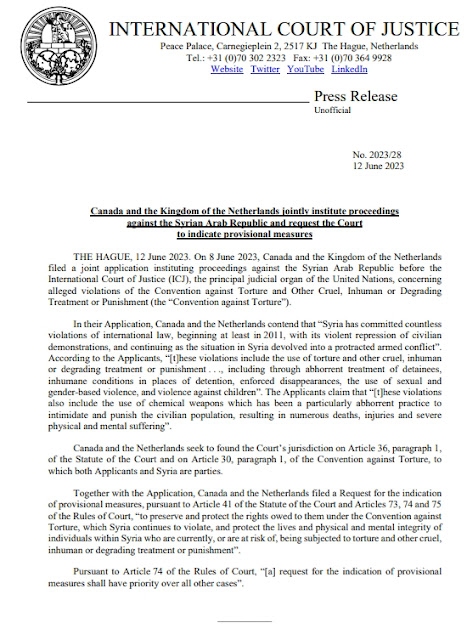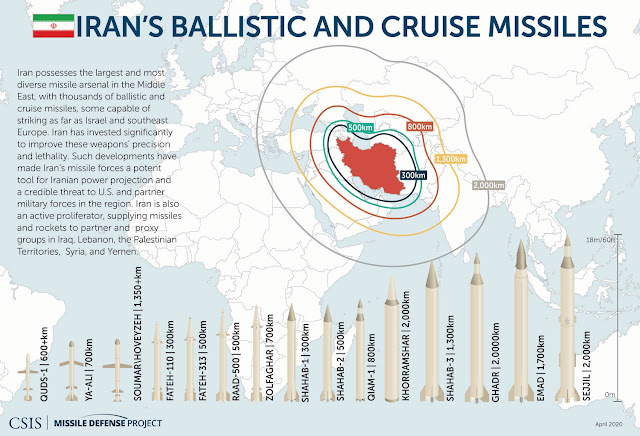Iraq's President Sees Iraqi Society "United"
Talabani calls on Iraqi voters to judge the constitution
By David Shelby
Washington File Staff Writer
Washington – Iraqi President Jalal Talabani says the vocal disagreement between different ethnic and religious communities in Iraq should not be interpreted as a sign of civil discord but, rather, an indication of a healthy political environment.
“There is no civil war in Iraq, and Iraqi society is united,” Talabani told a group of journalists in Washington September 9. “But because we have a democratic climate … there are dialogues, there are discussions, there are sometimes different ideas, views. But in the end, you see Iraqi society united.”
He said the democratic process is helping forge a stronger sense of national unity in Iraq. “As history proved, multination governments and states can only survive when there will be democracy and federation and equality,” he said.
Speaking about reservations in some parts of the Sunni Arab community about the role of federalism in the new Iraqi Constitution, Talabani said it is up to the Iraqi voters to decide. “Let us … ask the people, go back to the referendum to ask the people. If they don’t want federation, OK. If they didn’t want it, put it aside,” he said.
Iraqi voters are being asked to vote on the new draft constitution in an October 15 referendum. As it stands, the document provides for greater empowerment of regional governments under a federal system.
Talabani said Iraq likely would be able to build up its security forces within the coming year, thereby allowing the United States to draw down its forces, but he said American troops are serving more than just an internal security function.
“I think we need to have American forces. It’s not only for the security of Iraq …. The need for American forces there … is to frighten our neighbors not to interfere in our internal affairs. We are afraid from this,” he said.
Talabani expressed Iraq’s appreciation for the support it has received from Turkey and Iran, and he said that Iraq does not support the activities of the PKK, Turkey’s militant Kurdish opposition group. Talabani, himself a Kurd, said, “We think that PKK committed a big mistake when they resumed the war against Turkish government …. We think that the time is for all people to choose political and peaceful methods of struggle. We don’t think that what they are doing is in the interests of the Kurdish people either in Turkey or in Iraq.”
Bush Tells Iraqi President U.S. Support "Will Not Waver"
U.S. president says Iraqi people can be proud of their draft constitution
President Bush reaffirmed the U.S. commitment to helping the Iraqi people build a peaceful and free democracy and described the country’s recently drafted constitution as a “historic milestone.”
Speaking at the White House September 13 with Iraqi President Jalal Talabani, Bush told the Iraqi leader, "I pledge we will not waver, and I appreciate your same pledge. Iraq will take its place among the world's democracies. The enemies of freedom will be defeated.”
Bush compared the ideology of terrorists in Iraq fighting Iraqi, U.S., and other international forces to that of the former Taliban regime in Afghanistan and al-Qaida agents who carried out the September 11, 2001, attacks against the United States.
“Their vision is for an Iraq that looks like Afghanistan under the Taliban, a society where freedom is crushed, girls are denied schooling, and terrorists have a safe haven to plot attacks on America and other free people,” he said.
The president praised Iraq’s draft constitution, saying the Iraqi people “can be proud” of it when they have a chance to “vote their conscience” and ratify the document in a referendum scheduled for October.
The draft constitution, Bush said, “protects fundamental freedoms, including religion, assembly, conscience and expression.” The proposed federal system of government “is essential to preserving the unity of a diverse nation like Iraq,” he said, and the document “declares that all Iraqis are equal before the law, without regard to gender, ethnicity and religion.” (See Iraq's Political Process.)
Welcoming Talabani to the United States, Bush thanked him for Iraq’s “generous pledge of aid” to the victims of Hurricane Katrina on the U.S. Gulf Coast, and said that when the Iraqi leader attends the U.N. High-Level Plenary Meeting in New York September 14, that session “will mark the first time in a half-century that Iraq is represented by a freely elected government.”
Speaking on behalf of the Iraqi people, Talabani thanked Bush and the American people for “liberat[ing] us from the worst kind of dictatorship” under the former regime of Saddam Hussein.
“We salute you. We are grateful to you. We'll never forget what you have done for our people,” Talabani said. Expressing regret for American losses in his country, he said “a great people like America have a mission in … history,” and cited troops killed in both World Wars and in recent conflicts in the Balkans and Afghanistan.
The Iraqi president said no timetable for the withdrawal of American or other international forces from Iraq will be set because it would encourage the terrorists.
“We hope that by the end of 2006 our security forces are up to the level of taking responsibility from many American troops with complete agreement with America,” he said, but added, “We don't want to do anything without the agreement with the Americans because we don't want to give any signal to the terrorists that our will to defeat them is weakened or they can defeat us.”
Source: International Information Programs, U.S. Department of State.
Talabani calls on Iraqi voters to judge the constitution
By David Shelby
Washington File Staff Writer
Washington – Iraqi President Jalal Talabani says the vocal disagreement between different ethnic and religious communities in Iraq should not be interpreted as a sign of civil discord but, rather, an indication of a healthy political environment.
“There is no civil war in Iraq, and Iraqi society is united,” Talabani told a group of journalists in Washington September 9. “But because we have a democratic climate … there are dialogues, there are discussions, there are sometimes different ideas, views. But in the end, you see Iraqi society united.”
He said the democratic process is helping forge a stronger sense of national unity in Iraq. “As history proved, multination governments and states can only survive when there will be democracy and federation and equality,” he said.
Speaking about reservations in some parts of the Sunni Arab community about the role of federalism in the new Iraqi Constitution, Talabani said it is up to the Iraqi voters to decide. “Let us … ask the people, go back to the referendum to ask the people. If they don’t want federation, OK. If they didn’t want it, put it aside,” he said.
Iraqi voters are being asked to vote on the new draft constitution in an October 15 referendum. As it stands, the document provides for greater empowerment of regional governments under a federal system.
Talabani said Iraq likely would be able to build up its security forces within the coming year, thereby allowing the United States to draw down its forces, but he said American troops are serving more than just an internal security function.
“I think we need to have American forces. It’s not only for the security of Iraq …. The need for American forces there … is to frighten our neighbors not to interfere in our internal affairs. We are afraid from this,” he said.
Talabani expressed Iraq’s appreciation for the support it has received from Turkey and Iran, and he said that Iraq does not support the activities of the PKK, Turkey’s militant Kurdish opposition group. Talabani, himself a Kurd, said, “We think that PKK committed a big mistake when they resumed the war against Turkish government …. We think that the time is for all people to choose political and peaceful methods of struggle. We don’t think that what they are doing is in the interests of the Kurdish people either in Turkey or in Iraq.”
Bush Tells Iraqi President U.S. Support "Will Not Waver"
U.S. president says Iraqi people can be proud of their draft constitution
President Bush reaffirmed the U.S. commitment to helping the Iraqi people build a peaceful and free democracy and described the country’s recently drafted constitution as a “historic milestone.”
Speaking at the White House September 13 with Iraqi President Jalal Talabani, Bush told the Iraqi leader, "I pledge we will not waver, and I appreciate your same pledge. Iraq will take its place among the world's democracies. The enemies of freedom will be defeated.”
Bush compared the ideology of terrorists in Iraq fighting Iraqi, U.S., and other international forces to that of the former Taliban regime in Afghanistan and al-Qaida agents who carried out the September 11, 2001, attacks against the United States.
“Their vision is for an Iraq that looks like Afghanistan under the Taliban, a society where freedom is crushed, girls are denied schooling, and terrorists have a safe haven to plot attacks on America and other free people,” he said.
The president praised Iraq’s draft constitution, saying the Iraqi people “can be proud” of it when they have a chance to “vote their conscience” and ratify the document in a referendum scheduled for October.
The draft constitution, Bush said, “protects fundamental freedoms, including religion, assembly, conscience and expression.” The proposed federal system of government “is essential to preserving the unity of a diverse nation like Iraq,” he said, and the document “declares that all Iraqis are equal before the law, without regard to gender, ethnicity and religion.” (See Iraq's Political Process.)
Welcoming Talabani to the United States, Bush thanked him for Iraq’s “generous pledge of aid” to the victims of Hurricane Katrina on the U.S. Gulf Coast, and said that when the Iraqi leader attends the U.N. High-Level Plenary Meeting in New York September 14, that session “will mark the first time in a half-century that Iraq is represented by a freely elected government.”
Speaking on behalf of the Iraqi people, Talabani thanked Bush and the American people for “liberat[ing] us from the worst kind of dictatorship” under the former regime of Saddam Hussein.
“We salute you. We are grateful to you. We'll never forget what you have done for our people,” Talabani said. Expressing regret for American losses in his country, he said “a great people like America have a mission in … history,” and cited troops killed in both World Wars and in recent conflicts in the Balkans and Afghanistan.
The Iraqi president said no timetable for the withdrawal of American or other international forces from Iraq will be set because it would encourage the terrorists.
“We hope that by the end of 2006 our security forces are up to the level of taking responsibility from many American troops with complete agreement with America,” he said, but added, “We don't want to do anything without the agreement with the Americans because we don't want to give any signal to the terrorists that our will to defeat them is weakened or they can defeat us.”
Source: International Information Programs, U.S. Department of State.


